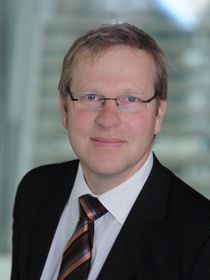The Department for Migration and Globalization at Danube University Krems is conducting a study on the integration of young Syrian refugees in Germany, Austria and Jordan focusing on three aspects: The impact of the Austrian government's policies, the link between mental health and the sense of belonging, and the importance of extra-curricular activities in terms of integration.
The Syrian conflict displaced millions of people. 6,1 million within Syria, and another 5,4 million to neighboring countries. Nearly 1,1 million Syrians filed an asylum application in the EU between 2014 and 2019. Now, one of the main challenges is to examine how young Syrians refugees, especially those between the ages of 15 and 24, can be integrated successfully. Which factors are particularly important for successful social integration? Recent research suggests that despite considerable efforts and some successes on the labor market, social integration remains a socially and politically complex issue.
Three approaches to youth integration
The dissertation project of Christina Khoury from the Department for Migration and Globalization, examines the social integration of young Syrian refugees in Germany, Austria and Jordan in three sub-projects, with the first sub-project investigating the government policies’ role and practices on social integration. Here, the focus lies on the development of political strategies to adapt the asylum and integration system since 2015, when the number of new arrivals suddenly soared. The project elaborates the existing challenges as well as the potential for improvement of the political framework.
The second sub-project examines the reciprocal effects between the sense of belonging, mental health and well-being of young refugees when meeting new environmental living conditions in Germany and Austria. The role local politics and civil society play in this context is taken into account.
Subject to the third sub-project is exploring how extracurricular projects can unfold their potential as a tool for integration. Here, the influence musical activities have upon social integration in large cities is focused on. A study comparing the cities of Vienna, Berlin and Amman is the goal.s
Focus groups to gain insights
Ager and Strangs (2008) conceptual framework of integration is where the investigations start. Methods differently adopted and data sets already available are used for the research. Focus groups will provide data for the contextualization, planning and evaluation of surveys, and will also form the basis for in-depth interviews with selected young refugees and experts in the field. An overall presentation will bring all the results of the three project parts together to be ready for the final presentation.
Project: Measures for a more successful integration of Syrian youth refugees into host societies: A comparative study of the integration of Syrian refugee youth in Germany, Austria and Jordan
Project period: 1 November 2019 - 30 October 2022
Funding: Federal States (incl. their foundations and institutions)
Support program: NFB, Life Science
Department: Migration and Globalization
Project lead: Prof Mathias Czaika
Participating researcher: Christina Khoury
Contact
More information
Tags
